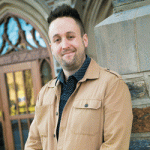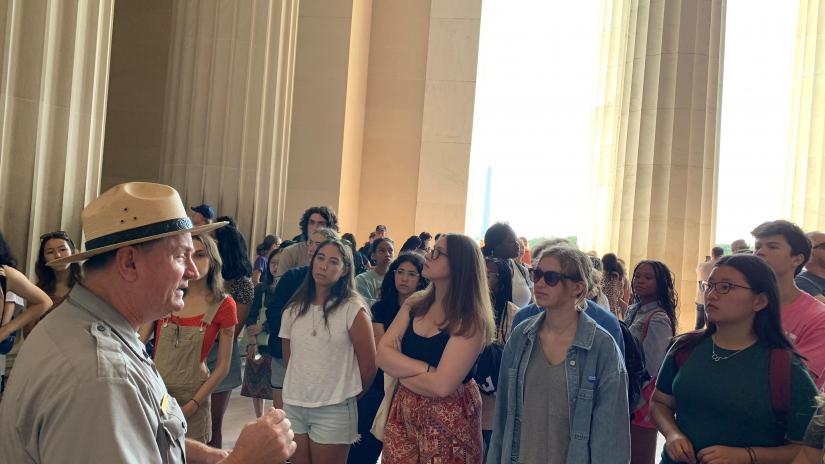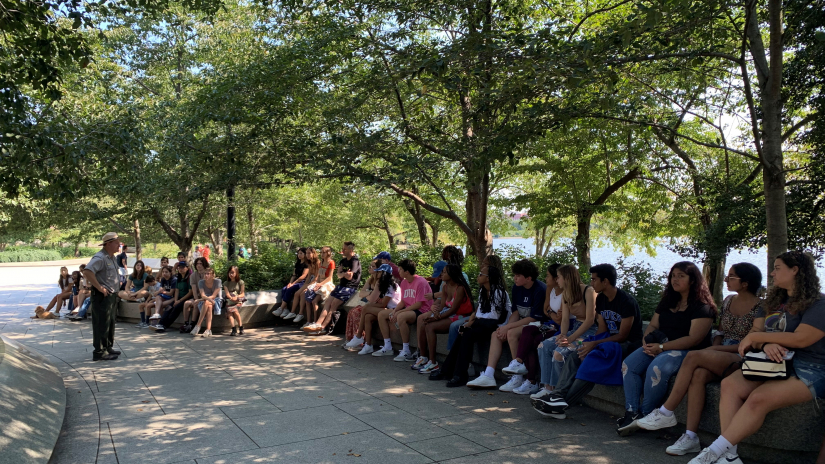The American Experiences
Overview
In this FOCUS cluster, we examine the making and remaking of the United States from a variety of perspectives--historical, political, philosophical, religious, legal and literary. What does America profess to value in its institutions, and what realities does it, in fact, institute? How are we to know the differences? Can they be addressed? In each seminar, we examine the interplay between consecrated ideas of what America is—a land of opportunity, a city on a hill, a nation of laws, a society dedicated to the principle that “all men are created equal,” and the lived experience of Americans, including those who have been dispossessed by slavery, nativism, racism and other forms of prejudice and injustice. We continue these reflections at our weekly dinners, where we pay particular attention to the aspirations and historical realities that have shaped Duke and Durham.
Courses
History 190FS- History of Abortion: Race, gender, Religion, and Law (IJ, WR)

Jenette Wood Crowley, Assistant Vice Provost for Undergraduate Education - Intellectual Community
This course examines the complex history of abortion in the United States, with a focus on how race, gender, and religion have intersected to shape policies, laws, movements, and cultural attitudes. Moving from colonial America to the present, we will explore the history of abortion, key legal and public health aspects, the anti-abortion social movement, the realities of abortion provision, and abortion in popular culture and public opinion. Key themes include the role of religious institutions, the racialized impacts of abortion laws, and the intersections of reproductive justice and gender equity. Through critical readings, lectures, and discussions, students will develop a nuanced understanding of the evolving discourse around abortion and its implications for contemporary society.
English 190FS - Mondo Weirdo: Eccentrics in American Art, Literature, and Popular Culture (WR)

Taylor Black, Assistant Professor of English
Taking its inspiration from the lurid and provocative mondo films popular during the 1960s, Mondo Weirdo surveys works by and about some of the most fabulously eccentric American artists and stylists from the 20th century. It examines how “the weird” has been represented and commodified across mediums.
From iconic figures such as Miles Davis, Zora Neale Hurston, Flannery O’Connor, and Andy Warhol to more obscure cult personalities such as Quentin Crisp, Dorothy Dean, Valerie Solanas, and A.J. Weberman, this course seeks out iconoclastic figures with extreme personalities and unforgettable works of art and almost-art. Through fiction, feature films (David Lynch, John Waters), documentaries (A Portrait of Jason, Grey Gardens), essays, memoirs, visual art, and popular music, while also considering historical context to understand the political, social, and economic conditions in which these works emerged. In doing so, students will be exposed to a whole cosmos of American artists and cult figures while also learning how to perceive and describe these eccentric geniuses in ways that are anything but average.
Through two short writing assignments (2-4 Pages) and one longer essay (7-8 pages) or creative project at the end of the term, students will expand their powers of perception and description while being encouraged to uncover the eccentric within themselves.
Political Science FS -

Candis Watts Smith, Professor of Political Science

